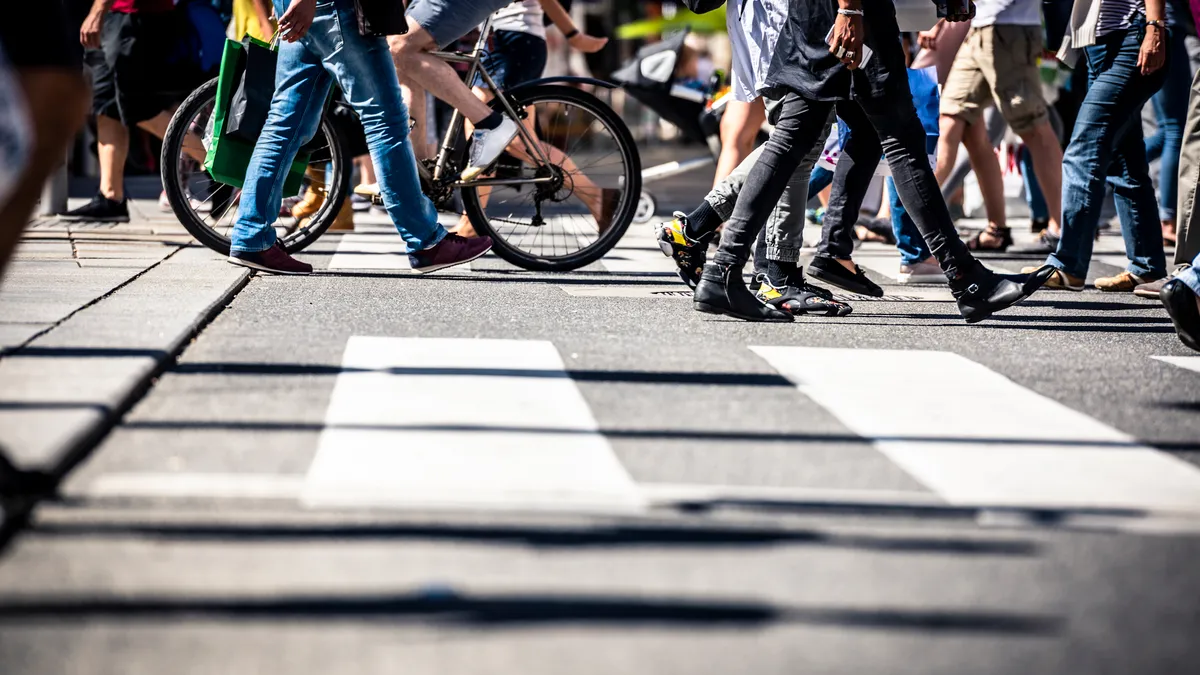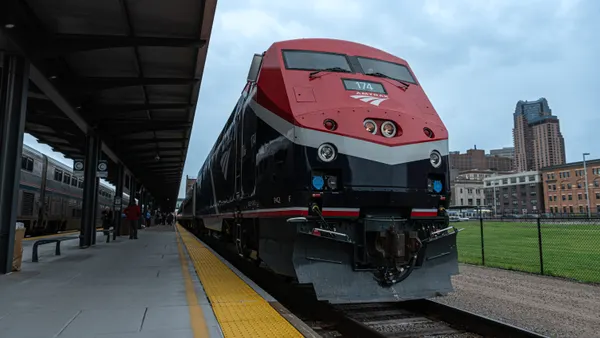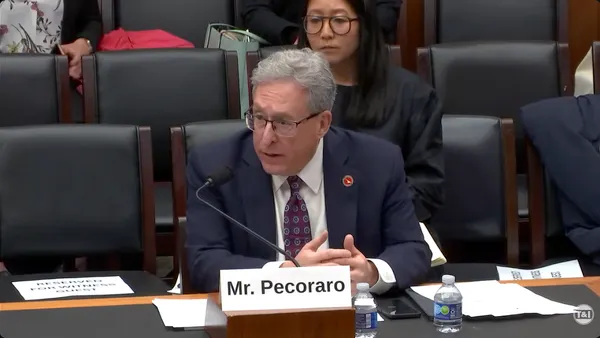Dive Brief:
- A New York law will provide more funding for municipalities for “complete streets” projects — those with a design approach that focuses on roadway safety and accessibility for people of all ages and abilities across different modes of transportation, including biking, walking, public transit and driving.
- Gov. Kathy Hochul signed the legislation on Dec. 28. The complete streets approach will “contribute to a cleaner, greener, transportation system,” the governor’s office stated in a press release. The law will increase the state’s contribution to the non-federally funded portion of these projects to 87.5%.
- On the same day, Hochul signed a separate law requiring that various transportation authorities’ boards have a transit-dependent representative with voting power to provide “a critical voice to riders who permanently rely on these services,” the governor’s office stated.
Dive Insight:
Complete streets design is one strategy cities are considering to address an epidemic of road fatalities and encourage lower-emissions transportation.
The Department of Transportation noted the approach in its National Roadway Safety Strategy released a year ago. The federal strategy aims to advance an overall “safe system” approach to road design that encompasses safer people, safer roads, safer vehicles, safer speeds, and post-crash care.
The Federal Highway Administration in March outlined how communities can move to a complete streets design model under the strategy, noting programs included in the bipartisan infrastructure law are designed to help fund complete streets initiatives.
Numerous street safety advocates voiced their support as Hochul signed the package. The law “empowers” cities and towns to invest in safe streets infrastructure, said Elizabeth Adams, senior director of advocacy and organizing at Transportation Alternatives, in a press release. “Traffic violence is preventable and this legislation gives communities another tool to combat this public health crisis,” Adams said.
Transportation Alternatives — part of a coalition of some 100 street safety advocacy groups, cities, colleges and nonprofits — is also backing New York’s SAFE Streets Act, a state package that could, in part, lower New York City speed limits.
Elsewhere in the Northeast, Massachusetts this week awarded $6.65 million in grants to 15 communities through the state’s Complete Streets Funding Program to help fund multimodal infrastructure projects such as bike path, sidewalk, crosswalk and curb installations and improvements. Most of the projects are located in environmental justice communities, which the state defines through income, race and language parameters.













